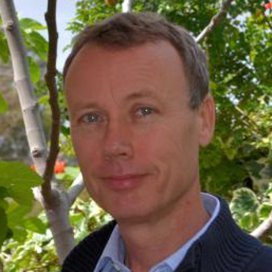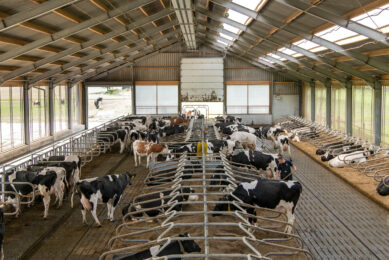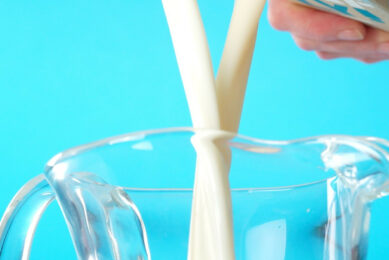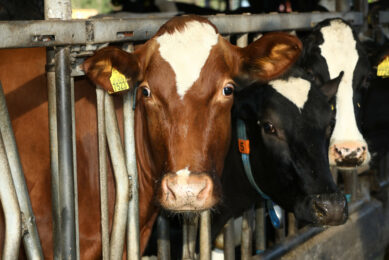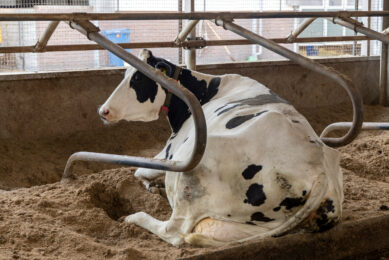Van Leeuwen Dairy Group puts 9 farms up for sale
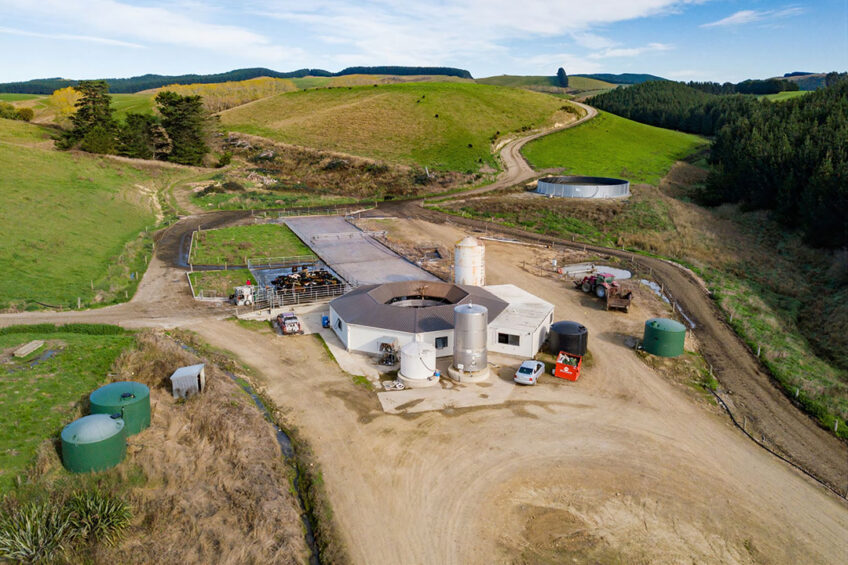
The Van Leeuwen Dairy Group, one of the biggest dairy producers in New Zealand, is selling 9 of its farms. The owners, Aad en Wilma van Leeuwen, want to focus on dairy barn operations.
Aad van Leeuwen, emigrated to New Zealand from the Netherlands, runs several dairy, dry stock farms and barn farms with his wife Wilma. One of the barns is said to be the world’s largest robotic dairy barn. They are selling nine farms, including 3,509 hectares of freehold land, irrigation shares and a supply contract with Chinese processor Oceania Dairy, that owns a manufacturing plant in South Canterbury.

Aad and Wilma van Leeuwen emphasise they have adopted a new vision for their business in the future. “Now is the right time to sell. We want to concentrate on the bigger part of the business, which are the hybrid barn and robotic barn farming systems,” says Aad van Leeuwen. “We are looking for a way to pass the business on to the next generation. We have worked 37 years building our farming business, and looking to step back and pass the business on to our family.”
For sale are 6 traditional seasonal calving grass based dairy farms, along with 3 dry stock properties. The dry stock farms are used for dairy youngstock grazing, some winter grazing for traditional grass based dairy farms and for beef. The farms have 5250 dairy cows plus associated youngstock.

The farms – on the South Island – are no more than 30 minutes from each other, with support blocks well located to the dairy farming hub. They currently produce some 1.84 million kilogrammes of milk solids a year and there is a potential to further increase production. The farms are operated under a traditional, pasture-based seasonal supply dairy farming system.
Milk price
Oceania Dairy offers a competitive milk price, which for the past two seasons has been the Fonterra milk price plus US $2.26 as a winter milk premium, which is added on top of the normal milk price. The Oceania Dairy milk price for 2019-2020 is US $4.60 per kg milk solids, so for 3 months of winter the Van Leeuwen Group receives US $6.86 per kg milk solids.
Next season the Ocean Dairy price will be US $3.91 per kg milk solids plus US $2.26 as a winter milk premium. According to Colliers the net yield on investment has been independently forecast at up to 7.30% on an owner-operator basis and 4.24% on a passive leaseback basis.
A price for the farms has not been made public. Estimates would value the nine Van Leeuwen farms at around US $51 million for land, buildings and irrigation shares. The Van Leeuwen Group has appointed Colliers International to market the portfolio internationally. Purchasers have the option to either own and operate the farms outright, or buy the farms as a passive investment, with external operational management via a long-term leaseback.
Mycoplasma bovis
Aad and Wilma Van Leeuwen were the first dairy farmers to be hit by the Mycoplasma bovis outbreak in New Zealand, in 2017. It was the first time the disease was seen in New Zealand and the Ministry for Primary Industries (MPI) launched a firm biosecurity response. It was the beginning of what Aad van Leeuwen would describe as ‘a nightmare’.

At least 4,800 cows of the Van Leeuwen Group had to be culled on 4 farms and a calf rearing complex. The Group has since then invested heavily in eradicating Mycoplasma bovis from all its farms. All nine farms for sale have been cleared of the disease for more than a year and a half.
Barn operations
Last December Australian non-bank lender Merricks Capital announced it had successfully completed refinancing of the Van Leeuwen Group. Chief executive Adrian Redlich of Merricks said then that this kind of deal would become more prevalent as banks became more reluctant to lend to the rural sector as capital requirements tighten.
Aad and Wilma van Leeuwen say their decision to sell is not motivated by financial pressure. “We have been focusing on our barn operations for a long time already,” Aad explains. “The bigger part of our business are our year round milking barn farm systems. We have 5,500 cows milked in barn systems with the potential to grow to 6,000. Barn housed cows produce up to double the milk than what seasonal outdoor grass based cows produce.”

The Van Leeuwen Group is also changing its farming system because of the environmental rules in New Zealand. “There are stringent rules in place with regards to nitrogen usage and leaching. And very likely there will be further restrictions on the use of phosphate and potassium fertilizers,” says Aad. “Our barn systems mitigate those rules very well.”
Aad and Wilma Van Leeuwen say their aim is to be a market leader in farming systems that are sustainable with new environmental regulations. They want to ensure their business is well positioned to capitalise on future dairy profitability due to ‘growing scarcity of supply’. The group’s vision is to optimise its existing robotic barn farming operations as well as to invest in future growth.
Join 13,000+ subscribers
Subscribe to our newsletter to stay updated about all the need-to-know content in the dairy sector, two times a week.



